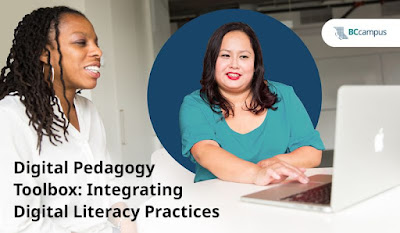
“Canadian experience is another term for racism and
discrimination.”
– Survey respondent
A series of consultations and public engagement were
conducted earlier this year with more than 1,450 people representing
internationally trained professionals, educational institutions,
immigrant-serving organizations, business associations, health-care
associations, regulatory authorities, and members of the public. The objective
of this engagement was to gather feedback on the Canadian international
credential recognition process for internationally trained professionals. Over
the next decade, 387,000 newcomers are expected to enter the B.C. workforce,
filling 38% of job openings.
The results of this engagement were shared in a report
released by the Ministry of Post-Secondary Education and Future Skills in July
that identified several priorities to improve credential recognition and
identified 8 themes:
- Theme 1: Streamlining complex processes and
shortening timelines
- Theme 2: Improving the accessibility,
consistency, and transparency of information about the licensure process and
requirements
- Theme 3: Exploring alternative pathways for
credential recognition
- Theme 4: Exploring more flexible approaches to
demonstrate language proficiency
- Theme 5: Introducing performance standards for
data and reporting
- Theme 6: Increasing financial and other supports
for internationally trained professionals and regulatory authorities
- Theme 7: Improving coordination between
government and regulatory authorities at the provincial and federal levels
- Theme 8: Strengthening collaboration between
regulatory authorities, educational institutions, employers, and immigrant
serving organizations to support licensure and integration
Each of the themes is described in detail in the report.
I work in the areas of competency development and
competency-based assessment and specialize in designing alternative pathways using
recognition of prior learning, knowledge, and skills. Given my background and
expertise, I can say that theme 3 is perhaps one of the most critical pieces of
the puzzle in improving the credentialing process. This theme recognizes the
need to adapt to the changing landscape of skills and qualifications,
especially in a world where individuals may have gained their knowledge and
expertise through other non-traditional means.
For Theme 3, the
report
highlights how the feedback from virtual roundtable discussions and online
surveys indicated that the current Canadian work experience prerequisites are
ineffective in recognizing international experience and are perceived as biased
against internationally trained professionals. They recognized the complexity
of having just one route to licensure given the diverse pool of applicants with
varying backgrounds. Overall, regulatory bodies involved in the discussions
expressed support for transitioning away from uniform Canadian work experience
prerequisites in favor of an approach that assesses competencies.
The report concludes that "There is a strong need
for alternative, competency-based pathways to demonstrate skills and
knowledge."
Competency-based pathways are approaches that focus on the
demonstration of specific skills and knowledge rather than traditional and
formal measures such as time spent in a classroom or the completion of a course
or curriculum. Using competency-based pathways and by recognizing prior
learning acquired through non-formal approaches, internationally trained
professionals can feel more empowered to prove their competence and readiness
for a particular job role. With competency-based pathways, the emphasis is on
the demonstration of knowledge and skills through portfolios, assessments, interviews, projects, and real-world applications rather than traditional exams or
coursework. Competencies can also be stacked to build qualifications and
certifications progressively therefore making the process more flexible and
adaptable to the current needs.
Overall, Theme 3 highlights the importance of reevaluating
and modernizing the recognition of skills and qualifications to better align
with the realities of the modern workforce. By exploring and implementing competency-based
alternative pathways for credential recognition, the province (and the country)
can utilize a more inclusive and flexible approach to credential recognition,
benefiting both individuals seeking to utilize their skills and the broader
community and economy.
-----------
As a result of this engagement, the Premier of British Columbia, David Eby, recently made an announcement about introducing legislation this fall to help regulatory bodies improve the credential recognition process and make it easier for people to use their skills to work in B.C. Upcoming legislation will outline new responsibilities for professional regulatory bodies under the core themes of accountability, fairness, transparency, and efficiency.
References:
Press Release: https://news.gov.bc.ca/releases/2023PSFS0055-001564
Report on credential recognition:
https://engage.gov.bc.ca/app/uploads/sites/121/2023/07/What-We-Heard-Report-International-Credential-Recognition-2023-07-24.pdf

.png)






